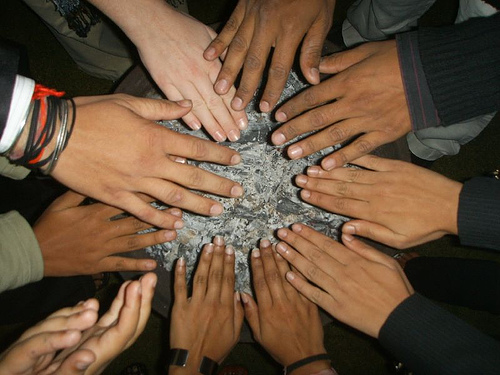The Feminist Combining Process
created by:
Sangeeta Ahmed, Ashley Howard and Hiywete Solomon

Anti-Racist Movements
An individual has not started living until he can rise above the narrow confines of his individualistic concerns to the broader concerns of all humanity. -MLK,jr.
Today, forty years after the Civil Rights Movement in the United States, racism still lingers. Much has changed though and this is evident in all movements, including the Feminist movement. White supremacy kept the earlier days of the Feminist movement in "denial," as Bell Hooks puts it, about the role of race in the lives of women. Women of color had to repress their issues in an effort to be included in the movement. Bring about issues dealing with race were considered tempering with the goals of the Feminist movement.
Organizational Combining is present when looking at the race in relation to the Feminist movement. Although there's still a long way until racism is eradicated, many organizations regarding women's rights have included not only the battle against sexism, but racism as well. They combined issues that affect not only white, heterosexual women, but all kinds of women. Examples include one of NOW's top priority issues: Promoting Diversity and Ending Racism (18).
Internal Combining is evident in the organization Sista II Sista whose objective is to "build together to model a society based on liberation and love...[by] working with young women to develop personal, spiritual and collective power."(24) The organization encourages Black and Latina women to work together despite their differences in culture. In doing so, they build a relationship to support on another in their struggle to attain change and social justice. This Combining is not only of groups, but different issues groups face. Although Black and Latina women share similar injustices, they are not always same or proportionately the same. This collaboration reflects the need to unite and work together to fight injustices.

Image is
licensed under a Creative Commons Attribution 3.0 License
Personal Combining can be shown in the anti-racist movement by the white women who took on the issues women of color were facing and fought beside them. This is evident today with the backlash of Don Imus' comment. When the comment about the Rutger's women's basketball team was made, Black women were not the only ones to get mad or argue against it. Black men and White women acknowledged both words in Imus' phrase as being racist, sexist, and prejudice. This consensus was significant. Civil Rights leaders and Feminists were in an uproar because of the usage both sexist and racist terms. In relation to the Rap/Hip Hop industry, the aftermaths consisted of men taking on issues of unfair representation of Black and Latina women in the media.
